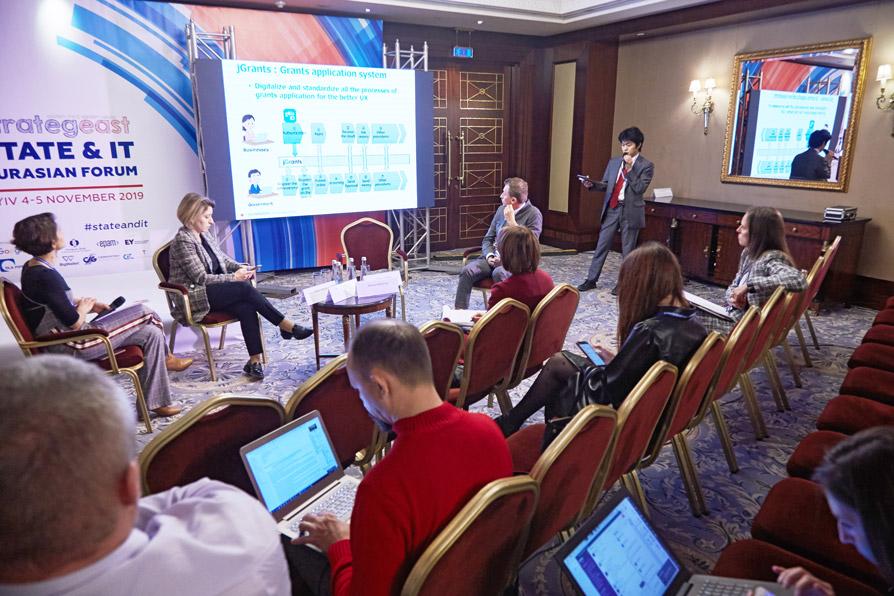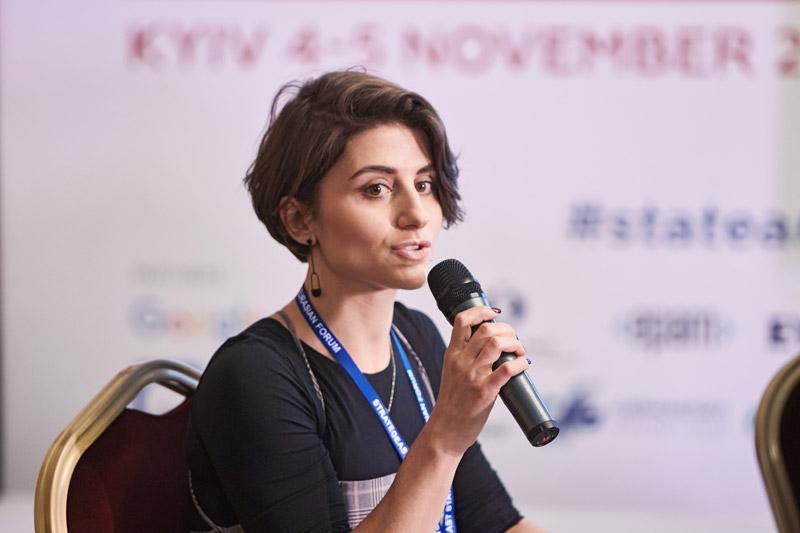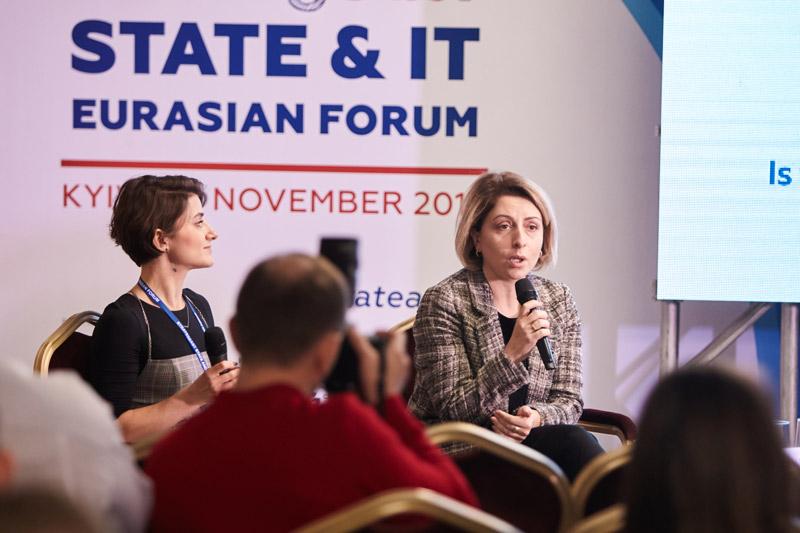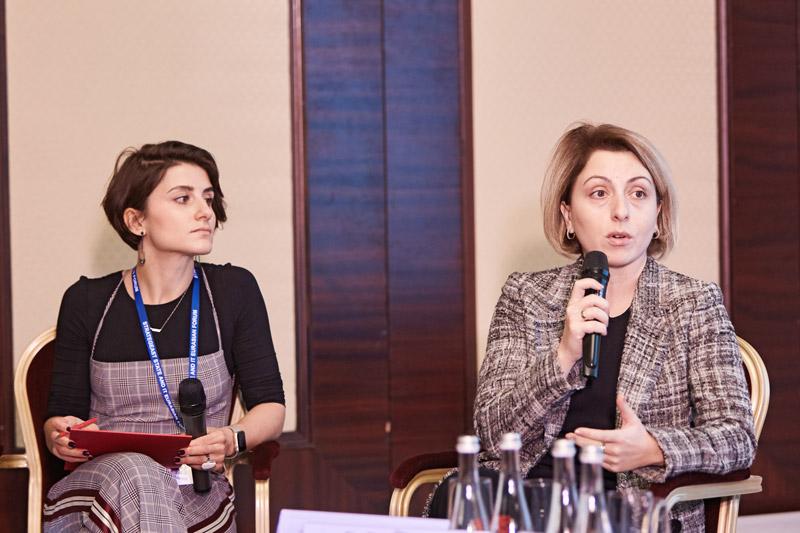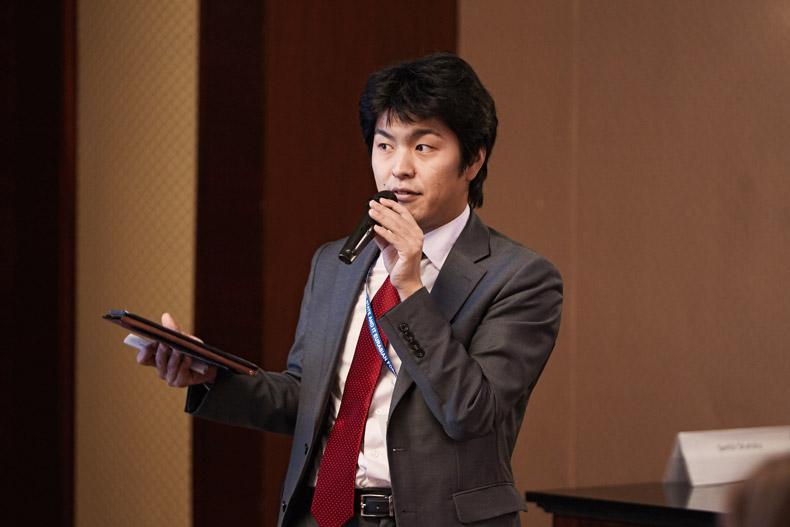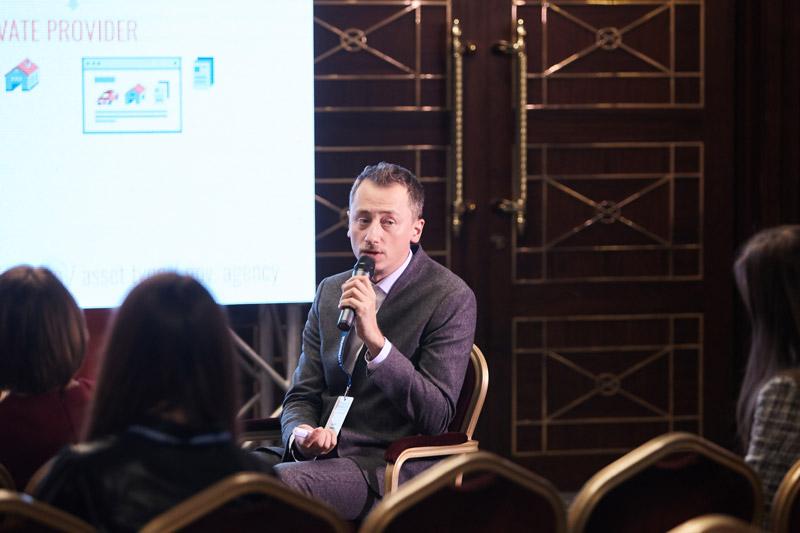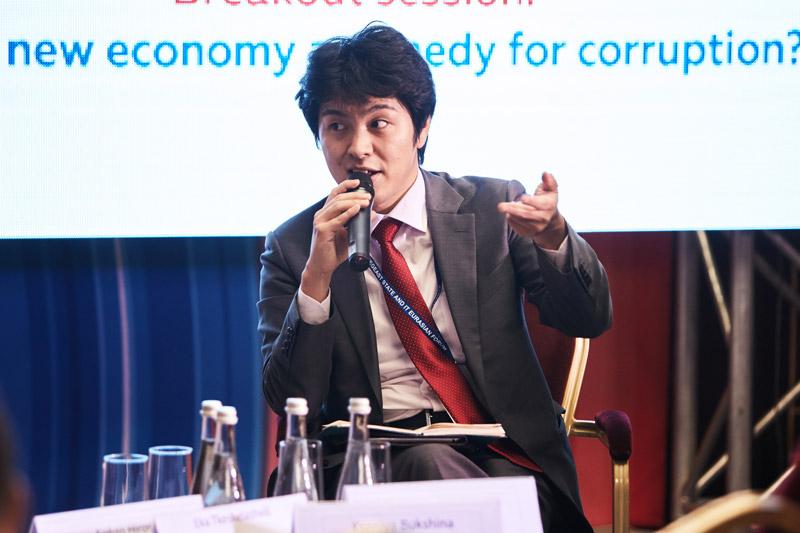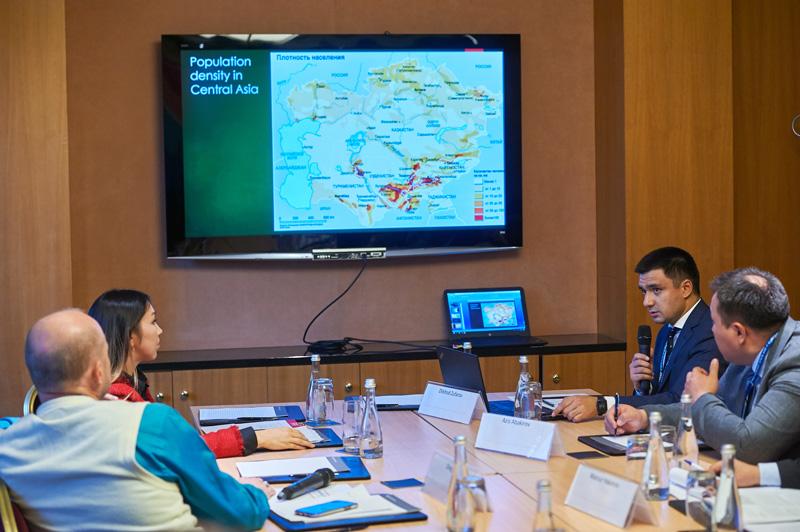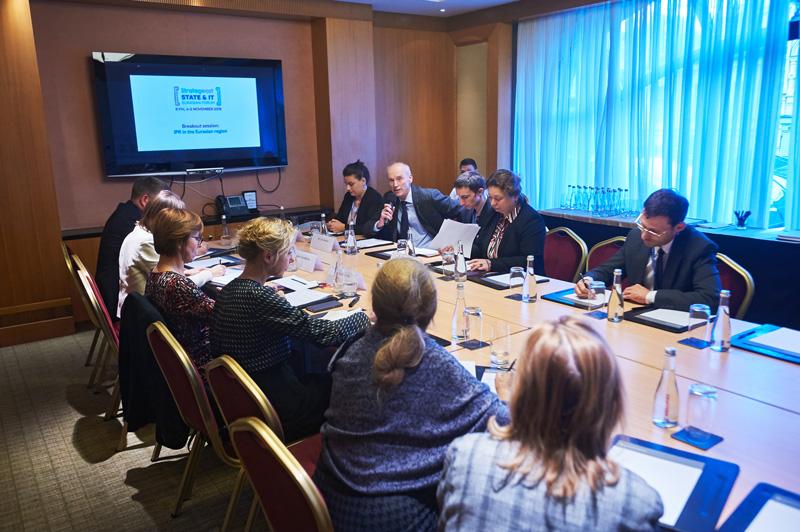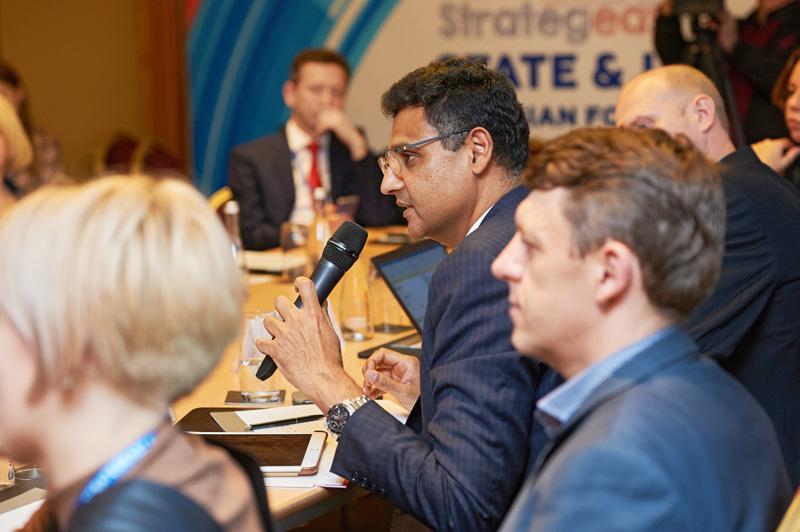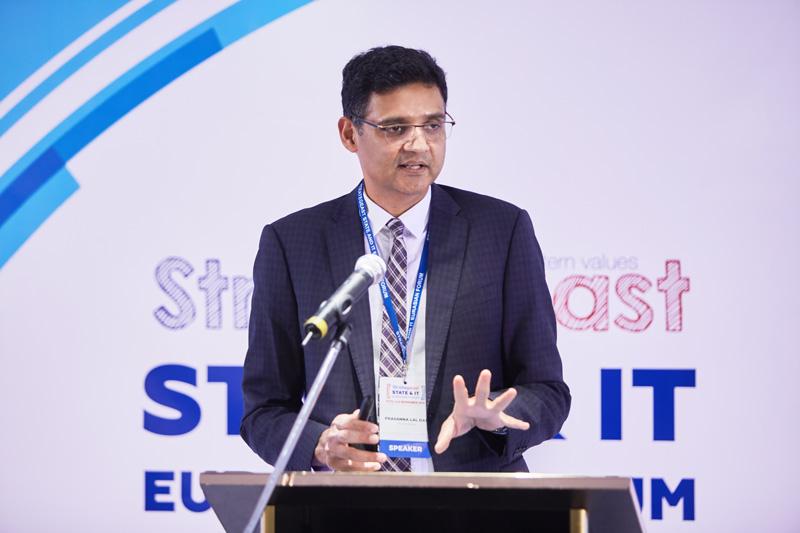![]() Presentation by Kohzo Hirose, Japan External Trade Organization
Presentation by Kohzo Hirose, Japan External Trade Organization
Download
The material is prepared based on speeches at the panel session ‘Is the new economy a remedy for corruption?’ The speakers on the panel: Kseniya Bukshina, Tak publishing (moderator); Kohzo Hirose, JETRO Istanbul Director for Economic Affairs; Ministry of Economy, Trade and Industry of Japan; Oleksii Sobolev, CEO Prozorro.Sale; Eka Tkeshelashvili, Head of EU Anticorruption Initiative in Ukraine.
Eurasian countries repeatedly rank high in terms of perceived level of corruption. According to the Corruption Perception Index 2018, published by the global anti-corruption organization Transparency International, Ukraine received 32 points, ranking 120th among 180 countries. This result is 2 points and 10 places higher than in 2017 (when Ukraine ranked 130th with 30 points). However, the results are still quite disappointing, as according to the Index, 0 score is for absolutely corrupted countries and 100 means fully transparent. Thus, the Eurasian countries still have a lot of space for improvement.
One of the initiatives helping Eurasian countries in the pace of reforms is the European Union Anti-Corruption Initiative in Ukraine. The managers of this program believe that the elements of the new economy include new ways of administration with the principles of good governance. Digitalization is a tool of the new ways of governance and the new ways of doing business. Although it is just a fraction of what the system represents. Yet the biggest challenge is the transformation of state institutions’ operational cycle. The hardest element to change is the way the state institutions think and gather data. And it is digitalization that can help organize the processes in an automated way, preventing them from being manual and transforms the institutions’ course of action. It makes the change more irreversible, as the people getting used to the easier way of cooperation with the state are not willing to get back to the old methods. Moreover, it is a transformational way of planning for the businesses as well, because they start to realize that they do not need to initiate contacts with different institutions, they do not need to pay bribes. Digitalization can help combat corruption in a sustainable and innovative way, as classical ways are not sufficient in the 21st century.
Japan, which luckily experiences no corruption in the public sector, uses various means to make governmental decisions fully transparent. The country analyzes various kinds of data which is a very good tool to show the economic impact of the policy. The country strives to make its government services to more user centered. It digitizes the public services, practices standardization of data sets and APIs (application programming interfaces – interfaces or communication protocol between a client and a server intended to simplify the building of client-side software; APIs are usually developed in a form consumable by a client application) for analytics and automation, and connects private services with public services by open APIs.
Ukraine makes its steps towards digitalization of public services as well. And it succeeded in creating what they call “the world’s most transparent electronic auctions system” Prozorro.Sale. The system has sold products and services worth $840 million during the last three years. It started as a project by Transparency International and later was transferred to the government. Prozorro.Sale uses an innovative two-tier system – a central database with an API that belongs to the government – and multitude of marketplaces (auction websites) which connect to the central database, which in turn makes this system demonopolized. This is a result of public private partnership where business brings the user interface experience and the government just sets the rules and looks after the backend, so that different marketplaces could communicate through APIs. All the steps of the processes are recorded and displayed, including the documents, signed contracts, names, which gives the system much more trust than usually expected in Ukraine, and allows the government to make a transaction. Since the platform became so big, it is used by private businesses as well. It also provides the ability for local governments to access bigger markets. Prozorro.Sale has already started the new insolvency auctions, timber auctions, it will be launching renewable energy auctions, and part of the land market would go through the system as well. The system is fully open source, there are no hidden rules, which allows any other country to copy the code and install it. Ukraine is in talks with other countries in Europe who are interested in similar systems. Ukraine has very good chances to make the virtue out of necessity and set benchmarks in ways of combatting corruption.
The panelists have outlined a number of measures which are believed to help Eurasian countries tackle corruption. Those measures are not only of technological nature, but also include political support of reforms within the countries.
- Increasing the degree of transparency for the government activity. Digitalization of the process will allow politicians to make transparent decisions; it will make shady deals and cases of corruption impossible. Eurasian countries need to start disclosing more data than anywhere else in the world, which will safeguard the system from different interests of politicians. Then the governments will start to make decisions based on data, and that would help to solve multiple budgetary and other problems.
- Simplification of different registries of the government, consolidation of the data through one entry point for a citizen, under which the citizen registers once, and the system automatically provides all the necessary information to other government agencies.
- Digitalize interaction of the citizens with government where possible, including signing the declarations with the doctor, using open data portals.
- Consolidation of the platforms for data on export and import. Such consolidation of data could become the basis for easiness of processing information throughout the governmental agencies.
- Enhancement of cybersecurity for government sector. Introducing agencies responsible for cybersecurity. Elaboration of policies to work in modern environments, including use of e-clouds. At the same time, the strategic information of the government needs to be stored inside the country.
- Developing assessment of the data holders, analyzing what kind of data they have and which areas are the best for digitalization.
- Development of the human resource, reducing brain drain from Eurasian countries.
- The launch of a professional government agency that hires people with strong digital literacy, able to run big-scale projects. Introducing market level salaries for people to be able to transform the government.
- Introducing an automated system of verification as a buffer to identify the risk factors of those individuals that have to be verified. People of high position within a government have to be fully verified every year under the legislative requirements.
- At the stage of implementation new products that could be developed need to be calculated, from the point of view of security and flexibility of the systems, the cost effect related elements should be calculated as well.
- Introducing national anti-corruption agencies further development of the measures to tackle corruption.
- Public private partnerships prove to demonstrate good results. The governments need to cooperate with the private sectors, engage professionals from outside.
- The simplification of the regulatory framework in some areas, political support of reforms.

